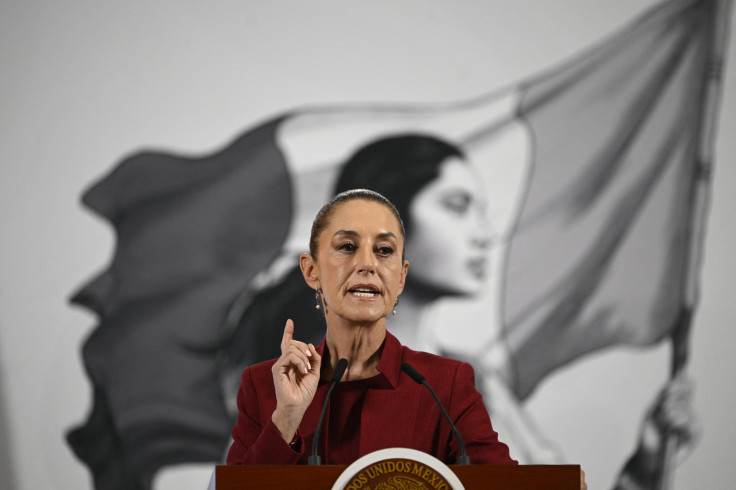
As Claudia Sheinbaum's first anniversary as president of Mexico approaches, questions during her daily morning press conferences have increasingly focused on how her first year in office has unfolded. This week, she was asked about the challenges of governing. Specifically, one reporter pressed: "What has been the hardest decision of your presidency?"
Although she has faced many challenges, particularly in Mexico, Sheinbaum admitted that her toughest moments have come not from domestic reforms but from dealing with the renewed tensions between Mexico and the United States under President Donald Trump.
When asked directly what the hardest decision of her presidency has been, Sheinbaum paused before pointing to the negotiations with Washington.
"More than complex, I think there are important decisions about how you must behave. The different moments we had of negotiation with President Trump were obviously tense moments, where you have to decide what you do and what attitude you take in a negotiation," she said, as reported by Mexican newspaper El Universal.
Trump returns, tensions rise
Trump's return to the White House in January 2025 has reshaped U.S.-Mexico relations. His administration quickly reimposed punitive tariffs on Mexican exports, triggering what many analysts called a new trade war. Mexico scrambled to protect key industries, securing temporary reprieves for certain goods under the USMCA, but the move rattled markets and threatened the country's manufacturing sector.
For Sheinbaum, the tariff dispute highlighted the delicate balance between defending national sovereignty and keeping the North American economy stable. The Mexican president was under intense pressure to retaliate with tariffs of her own but instead opted for direct diplomacy. After a tense phone call with Trump, she managed to win exemptions for critical exports, avoiding an immediate economic spiral. Still, the decision was politically costly at home, where critics accused her of being too soft on Washington.
Beyond trade, migration has been another fault line. Trump's anti-immigrant rhetoric and aggressive enforcement actions, including mass deportations and raids on undocumented workers, have placed Mexico in a difficult position. The White House has demanded that Sheinbaum's government step up enforcement at its southern border with Guatemala and accept more deportees.
Sheinbaum has condemned U.S. operations that target Mexican nationals, but she has also expanded consular services and legal aid for migrants facing detention. Balancing humanitarian protection with diplomatic pragmatism has become one of her greatest challenges.
Security and sovereignty
Perhaps the most sensitive issue has been Trump's move to designate several Mexican cartels as foreign terrorist organizations. The classification raised alarms in Mexico, where many saw it as a pretext for potential U.S. military intervention. Sheinbaum firmly rejected the possibility of foreign troops operating on Mexican soil.
"Mexico will not stand for any invasion disguised as cooperation," she said earlier this year, signaling a clear red line. Her administration even proposed constitutional reforms to reinforce sovereignty protections against foreign action. The episode underscored the constant high-stakes decisions she faces in defending Mexico's autonomy while maintaining essential cooperation with Washington on security.
Domestic reforms with no turning back
Although much of Sheinbaum's toughest decision-making has involved Trump, she also mentioned internal reforms. She highlighted her push for a sweeping judicial reform, which she described as mandated by popular demand.
"The decision that there was a popular mandate for judicial reform and that there was no turning back was also very important," she said.
The reform aims to reshape the balance of power in Mexico's legal system, limiting the courts' ability to overturn constitutional amendments. It has sparked heated debate at home, with opposition parties warning it threatens the separation of powers. For Sheinbaum, pushing ahead despite criticism reflected her willingness to spend political capital on structural change.
s a new set of high-stakes negotiations. The U.S., Mexico and Canada trade agreement is scheduled for review in 2026, and Trump has signaled he will push for tougher terms. Migration flows from Central America remain high, ensuring that border policy will stay at the top of the bilateral agenda. Meanwhile, the security cooperation debate will likely intensify as cartel violence continues.
For Sheinbaum, the hardest decisions may still be ahead,
© 2025 Latin Times. All rights reserved. Do not reproduce without permission.







